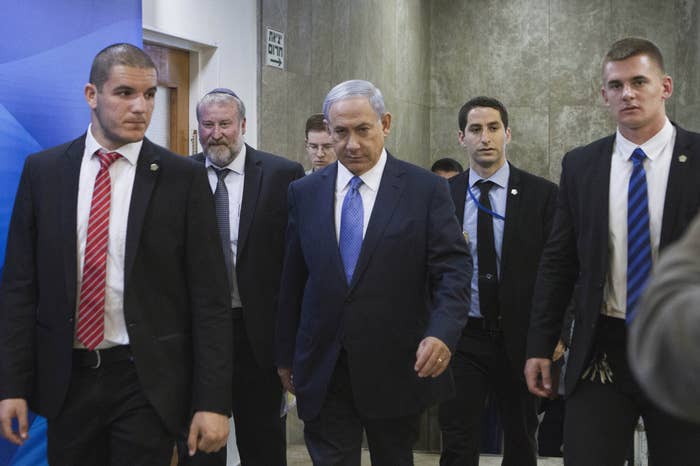
JERUSALEM — Israel has accepted that a deal over Iran's nuclear program is imminent, and has switched tactics from advocating against a deal to trying to influence the finer points, senior Israeli officials told BuzzFeed News.
Despite Israeli Prime Minister Benjamin Netanyahu's strong stance against a deal with Iran, epitomized in his speech to Congress earlier this month, Israeli officials involved in setting the country's Iran policy and monitoring the talks say they have been forced to reevaluate their talking points. Israel knows the world powers currently negotiating with Iran are pushing for a deal and is preparing itself for the day after, when it will be increasing intelligence and surveillance operations to make sure that Iran follows every aspect of a potential deal to the letter.
"There is a sense that a deal is inevitable, we must swallow that. But there is hope that we can make it slightly more palatable," said one Israeli official has been directly involved in Israel's strategy toward Iran. He spoke on condition of anonymity due to the sensitivity of the ongoing talks. "We are hoping that we can stop it from being a catastrophic deal, and just have it be a very bad deal."
"This agreement, as it appears, confirms all of our concerns and even more so," Netanyahu said at his weekly cabinet meeting Sunday. "Will this [deal] make their move forward more moderate or will it make it more extreme? I think it's a no-brainer. But this is happening before our eyes and I think the most important thing is to make sure that Iran doesn't get a path to the bomb and that Iran's aggression in Yemen and elsewhere, including around Israel's borders is stopped."
Iran and six world powers are currently working to break through an impasse in the negotiations, with just one day left until the deadline for the talks is set to expire. Officials in Lausanne, Switzerland, where the talks are being held, have said that the two sides are still working out a compromise over the number of centrifuges that should be left in Iran to enrich uranium that Iran says it will use for medical research. Iran had originally insisted on keeping the nearly 10,000 centrifuges it currently uses, but reports since have indicated that they would reduce the number of centrifuges to 6,000.
"Israel, of course, wants no centrifuges in Iran, that has always been our position," said the Israeli official. "But as that may not be realistic, we are now pushing for as few as possible. The fewer they have, the less uranium they can enrich, and the more obstacles stand in their way if they want to one day break out, and create a bomb."
Yossi Kuperwasser, who stepped down at the end of last year as director general of Israel's Strategic Affairs Ministry, said in a telephone briefing that Iran's underground facility at Fordow was a key sticking point for Israel, as intelligence gathering on the facility was limited by its hidden location.
"The agreement with Iran will be signed in spite of what we say," said Kuperwasser. When asked what sort of changes he would like to see, he said, "If the structure that was used for the centrifuges was destroyed that is something that would be a positive sign. These are the things that would be the spoonful of sugar that would make the medicine go down. But it will be bitter medicine."
Kuperwasser also held out the possibility that Israel could still take military action against Iran, despite wide-held views that it would only do so with U.S. support.
"We have said many times that we retain the option of doing whatever we see as necessary in order to slow down the way the Iranians move forward toward a nuclear weapon," he said.
Israel will only increase its surveillance of Iran in the coming months and years, said one Israeli intelligence official who spoke to BuzzFeed News by phone.
"If they are allowed to keep 6,001 centrifuges we will be watching to make sure it does not become 6,002," said the Israeli intelligence official. "This deal only works if Iran is never able to secretly break out and race towards a bomb."

